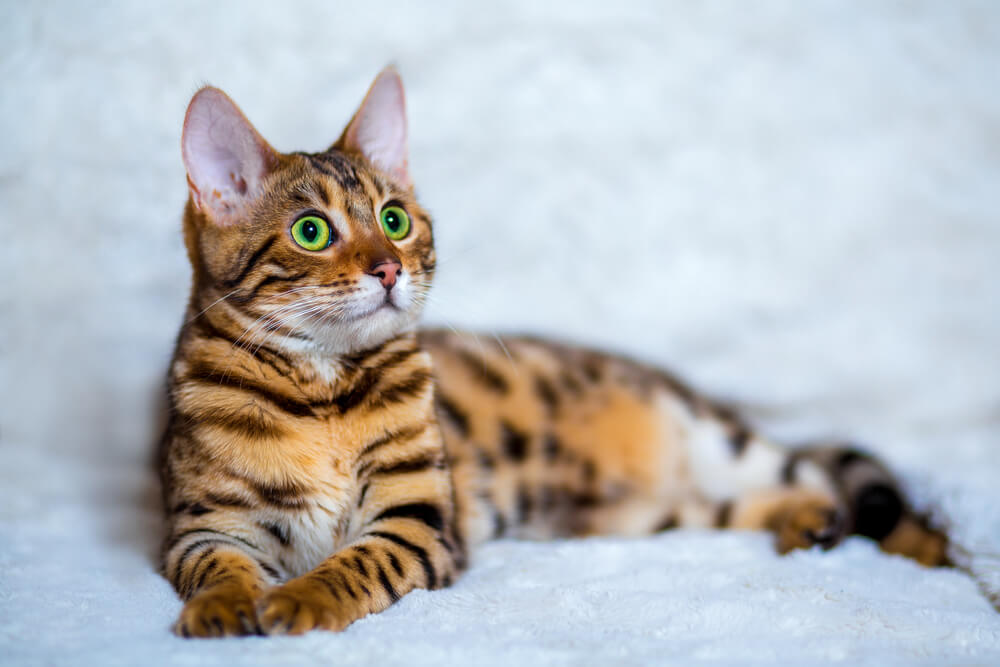Dander is a common allergen that can cause severe asthma attacks in people allergic to it. Bengal cats are one of the most common sources of dander, as they produce large amounts of it.
Yes, Bengal cats have dander. Dander is a protein found in animal skin and hair that can cause allergic reactions in some people. Bengals are known for being low-shedding, but they are still somewhat dander-free. Therefore, if you are allergic to cats, it is best to avoid them altogether.
However, if you absolutely must have a Bengal cat, there are some things you can do to minimize your exposure to dander.
These include brushing your Bengal regularly (preferably with a damp cloth), keeping your Bengal’s nails trimmed, and vacuuming your home frequently. You should also consider investing in an air purifier that can remove allergens from the air.
How Can You Tell if Your Bengal Cat Has Dander?
If you are allergic to cats, you may be wondering how you can tell if your Bengal has dander. One way to tell is by looking for signs of allergies in yourself.
For example, if you start sneezing, wheezing, or have watery eyes after being around your Bengal, chances are you are allergic to its dander. Another way to tell is by looking for a dander on your Bengal itself.
Dander will appear as small, white flakes on your Bengal’s fur. If you see these flakes, it means your Bengal has dander and is likely causing your allergies.
Also, if you have a Bengal cat and someone in your household is allergic to cats, it is vital to have that person tested for allergies to Bengal cats specifically.
This is because some people may be allergic to other types of cats but not Bengals. Nevertheless, if the allergy test comes back positive, it is essential to take steps to reduce the amount of dander in your home, such as using air filters and keeping your Bengal groomed.
How Can You Reduce Your Exposure to Dander?
There are several things you can do to reduce your exposure to dander. First, make sure to brush your Bengal regularly. This will help remove any loose dander from its fur.
Second, keep your Bengal’s nails trimmed. This will help reduce the amount of dander that is transferred to you when your Bengal scratches you.
Finally, vacuum your home frequently. This will help remove any dander that has been shed by your Bengal. You should also consider investing in an air purifier that can remove allergens from the air.
By taking these steps, you can minimize your exposure to dander and reduce your allergies.
Likewise, avoid letting your Bengal sleep on your bed. Dander can transfer from your Bengal fur to your sheets and pillowcases. If you must let your Bengal sleep on your bed, be sure to wash your bedding frequently in hot water.
Bengal cats are a stunning breed, but they can cause allergies in some people. Reducing your exposure to dander is crucial if you are allergic to cats. Following the tips above, you can minimize your allergies and enjoy living with your Bengal cat.
Can You Treat a Bengal Cat for Dander?
Unfortunately, there is no cure for dander. Yet, there are some things you can do to minimize your exposure to it. As mentioned above, regular brushing, nail trimming, and vacuuming can help reduce the amount of dander in your home.
You should also consider investing in an air purifier that can remove allergens from the air.
Furthermore, it is essential to keep your Bengal cat healthy. A healthy diet and routine vet check-ups can help reduce the amount of dander your cat produces.
Are All Breeds of Cats Prone to Dander?
No, not all breeds of cats are prone to dander. Some breeds, such as the Siamese, are known for being hypoallergenic. This means they produce less dander than other breeds and are less likely to cause allergies.
Dander is a common problem for cat owners, as all cats produce it to some degree. However, there are ways you can reduce your exposure to it.
You can minimize the quantity of dander in your surroundings by brushing your cat regularly, trimming its nails, and frequently vacuuming your home. You should also consider investing in an air purifier that can remove allergens from the air.
If you are severely allergic to cats, it may be best to avoid them altogether.














